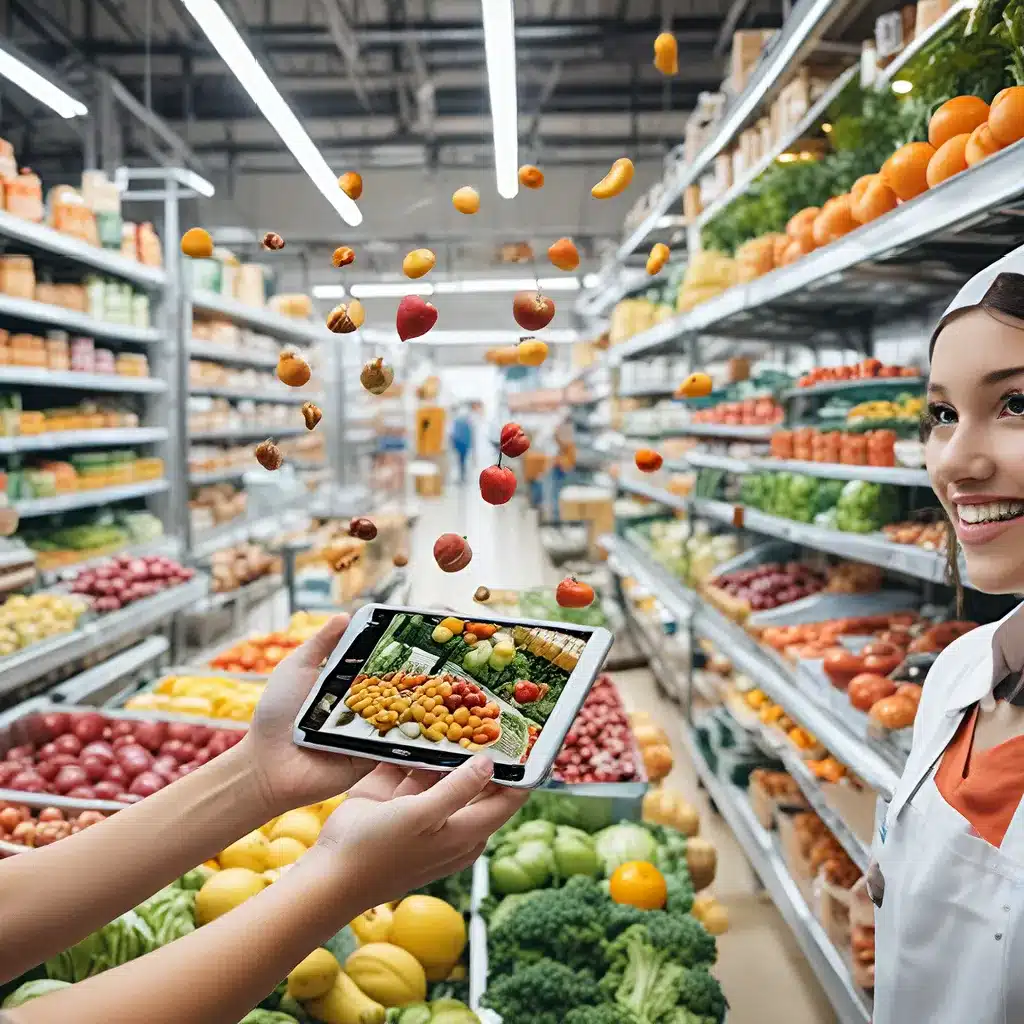
In the rapidly evolving world of food and dining, technology has become a game-changer, transforming every aspect of the industry from farm to table. As a food enthusiast, I’ve been fascinated by the ways in which cutting-edge innovations are revolutionizing how we produce, distribute, and consume our meals. Let’s dive in and explore the incredible impact technology is having on the culinary landscape.
Revolutionizing the Food Production Process
The food industry has always been on the forefront of technological advancements, and precision agriculture is a prime example. By leveraging the power of sensors, drones, and other high-tech tools, farmers can now monitor their crops with unprecedented precision. I’ve seen how this data-driven approach to farming has led to remarkable improvements in crop yields, reduced waste, and more sustainable practices. Gone are the days of guesswork; now, farmers can make informed decisions about irrigation, planting, and harvesting based on real-time insights.
But the technological revolution doesn’t stop there. The use of genetically modified organisms (GMOs) has also made its mark, leading to the development of crops that are more resilient to pests and diseases. While the long-term effects of GMOs on human health and the environment are still hotly debated, the potential for increased yields and reduced reliance on harmful pesticides is undeniable.
Streamlining the Food Supply Chain
Technology has also had a profound impact on the logistics and distribution of food. Autonomous vehicles, for instance, are poised to enhance efficiency and reduce delivery times, all while lowering the carbon footprint of food transportation. Imagine a future where self-driving trucks seamlessly navigate the roads, ensuring your favorite dishes arrive fresh and on time.
However, with these advancements come valid concerns. As someone who values transparency and safety, I can’t help but wonder about the proper handling of food during transit, the risk of contamination or spoilage, and the impact of temperature changes. It’s crucial that we address these issues head-on to ensure the integrity of the food supply chain.
Transforming the Dining Experience
The way we interact with food has been fundamentally altered by technology. Online grocery shopping has become increasingly popular, allowing consumers like myself to order our favorite ingredients from the comfort of our own homes. And the rise of food delivery apps has made the process of ordering takeout more convenient than ever before.
While these advancements have undoubtedly improved our access to a wider variety of culinary options, they’ve also raised some thought-provoking questions. Could the increased dependence on takeout and delivery food lead to unhealthy eating habits? Might the dominance of online shopping negatively impact local grocery stores and the communities they serve? These are the kinds of complex issues that we’ll need to grapple with as technology continues to shape the food industry.
Embracing the Future of Food Tech
As I reflect on the incredible impact of technology in the food industry, I can’t help but feel a sense of both excitement and apprehension. On one hand, the innovations we’ve seen have the potential to address pressing challenges, from food waste and sustainability to personalized nutrition and enhanced safety. The rise of 3D printing, for instance, has opened up new avenues for creativity in food production, from customizable confections to innovative packaging solutions.
On the other hand, the rapid pace of technological change has raised valid concerns about job displacement, privacy, and the potential consequences on public health. It’s crucial that as we embrace these advancements, we also carefully consider the needs of all stakeholders, from farmers and food workers to small businesses and consumers.
Saint Marc has been at the forefront of this technological revolution, leveraging cutting-edge solutions to optimize their operations and deliver exceptional dining experiences. By investing in data analytics, IoT devices, and automation, they’ve been able to enhance efficiency, reduce waste, and provide personalized service to their customers.
As we continue to navigate this exciting era of food tech, I believe it’s essential that we strike a balance between progress and responsibility. By staying informed, engaging in thoughtful dialogue, and prioritizing the needs of all those impacted, we can harness the power of technology to create a more sustainable, accessible, and rewarding food landscape for generations to come.
So, what do you think? Are you as captivated by the technological transformations in the food industry as I am? I’d love to hear your thoughts and insights on this fascinating topic. Let’s keep the conversation going and explore the endless possibilities that lie ahead.

